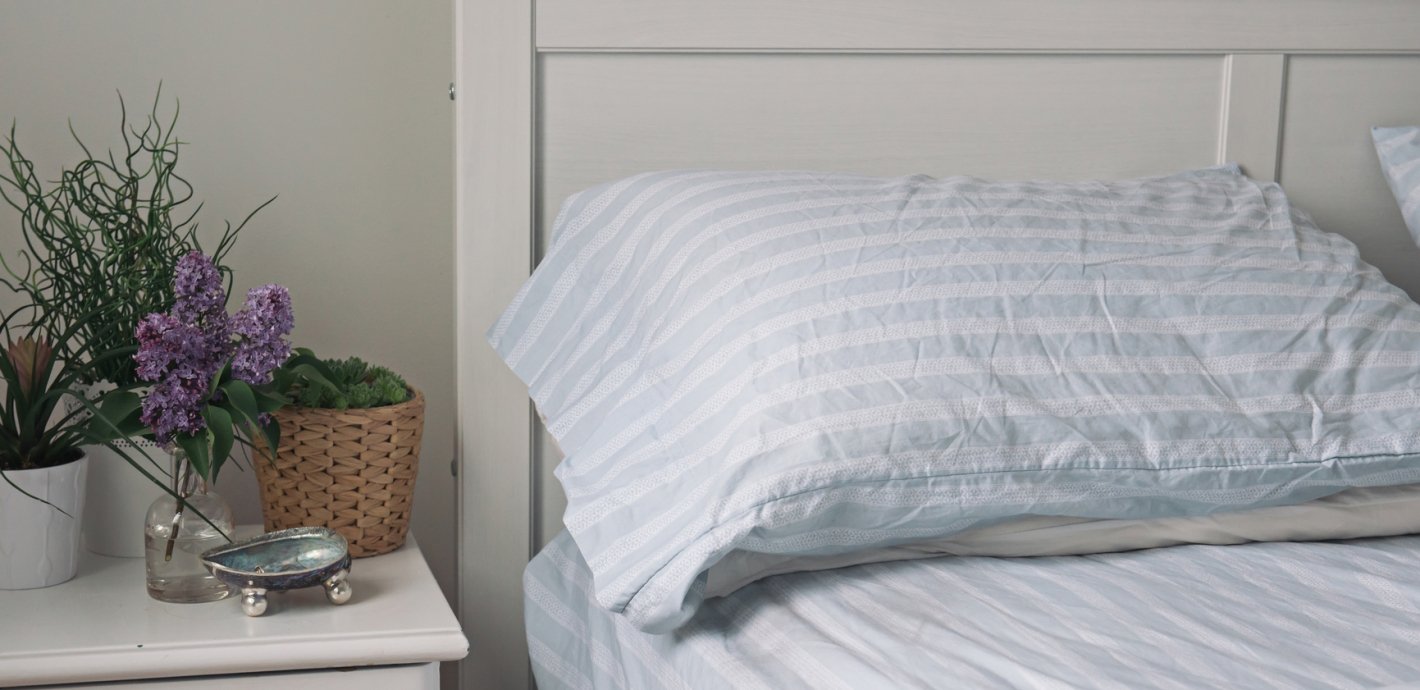There’s nothing like waking up rejuvenated after a peaceful night’s sleep. Getting just enough rest provides an exhilarating feeling of refreshment so you can live joyously and optimally. Yet, for the millions of people who suffer from insomnia, this dream may seem far from reality.
Research shows that sleep deprivation creates impairment equivalent to intoxication: Our reaction time slows, our memory suffers, and we are prone to mood swings. Over time, lack of sleep can lead to major health dangers, including severe mood disturbances, weight gain, car accidents, and injuries on the job. Frighteningly, an estimated 60 million Americans suffer from insomnia, and driver fatigue is associated with at least 100,000 police-reported car accidents in America each year.
Proper rest is a key factor in overall quality of life, and not just because it helps you feel more energized and alert. Sleep gives our tissues a chance to repair themselves and our brains a chance to organize information and memories. Sufficient and sound slumber improves cognitive performance, reduces inflammation, boosts creativity, and helps athletes perform better.
If you often find yourself tossing and turning at night and then dragging through the day, here are 12 techniques to help you rediscover the joys of a good night’s sleep.
1. Reduce screen time before bed. Many people read on an electronic device, send emails, or watch a favorite television show just before turning in. This may seem normal, but spending time in front of a screen is one of the worst ways to prepare for sleep. The blue light emitted from electronic screens—from computers to phones to television sets—actually prevents the brain from releasing the hormone melatonin, which helps us feel tired and prepares us for deep, restful sleep. If you find you’re having difficulty nodding off, it may be helpful to eliminate (or at least reduce) screen time during the one to two hours before bedtime.
2. Lower the lights in your home. Similar to blue-light emitting electronics, bright lighting can stop the brain from releasing the neurochemicals that help us wind down and get ready for bed. For this reason, it’s wise to turn off all bright lights several hours before bed, replacing these with softer and warmer hues. This will help your brain reset for sleep.
3. Buy an eye mask or blackout shades. Even a tiny amount of light can impair sleep. Therefore, if you have any lights at all—even tiny indications that your electronic devices are on—in your room, it’s best to cover these or block their light by wearing an eye mask. Also, if you intend to sleep past sunrise, blackout shades will help prevent the morning’s light from waking you prematurely.
4. Reserve your bed for sleep and sex. Bedrooms are often multipurpose spaces where you might work on a laptop, watch television, journal, and more. This can end up confusing our brains and bodies so we feel activated, rather than ready to unwind, when we hop into bed. If you have roommates and your only private space is your bedroom, it may be necessary to use this space for purposes other than sleep and sex. If at all possible, though, try to reserve your bed (and the entire bedroom if you can) for these two purposes alone. This will help you create a bedtime ritual, so that your brain will know getting in bed means it’s time to rest.
Related: Try a Guided Meditation for a Restful Night’s Sleep
5. Eliminate caffeine in the afternoon. Caffeine is a major sleep disruptor. This may especially be a challenge for insomniacs who feel they need more caffeine to wake up after a poor night’s sleep. Caffeine consumed in large quantities or too late in the day can keep our bodies abuzz with energy long after we try to tame our minds and head for dreamland. There’s no magic number of cups or Cinderella hour after which we absolutely need to cut out caffeine, but if you have difficulty falling asleep in the evening, you may want to experiment with reducing caffeine intake and/or tapering off after a certain hour.
6. Go easy on alcohol. It may even seem like red wine could serve as an excellent sleep aid. However, although wine may help us fall asleep more quickly, alcohol in any form has been shown to decrease the quality and depth of sleep, including causing “early morning awakenings”—those moments when we wake up in bed pre-dawn or before our alarm goes off without getting enough sleep. If sleep is a challenge, you may consider cutting out alcohol or cutting back the amount and/or frequency of your intake, and seeing if this helps you rest easier.
7. Try a melatonin supplement. Melatonin is a chemical our brains produce that helps us fall asleep and get deep rest. Melatonin supplements can help ease us into a drowsy state and fall asleep with fewer dangers than many sleeping pills. If you’ve never tried melatonin, you can find 3mg pills at a drug store near you. Take them an hour or two before bedtime and see how this affects your ability to fall—and stay—asleep. It’s best to take these when you have enough time to get a full night’s rest, as they can otherwise make you feel somewhat groggy upon waking. If you’d rather not pop any pills, try eating some cherries before bedtime; these pleasing fruits contain small amounts of naturally-occurring melatonin.
8. Drink a sleep-inducing tea. Chamomile tea, made from the chamomile flower, has a smooth, slightly sweet flavor. It is also known for its slightly sedative effects, which can make this an ideal pre-bed beverage. Some also say chamomile reduces anxiety, which can help us relax into sleep. Valerian root tea is also thought to bring on the zzz’s.
9. Meditate. Mindfulness can help reduce insomnia and depression, according to a randomized controlled trial published in the Journal of the American Medical Association. Jon Kabat-Zinn, one of the forefathers of the modern mindfulness movement, defines mindfulness as “paying attention, on purpose, in the present moment, without judgment.” One of the easiest ways to develop this quality is through a basic breath awareness meditation practice, for as little as five to 10 minutes a day. You can access a basic, guided mindfulness meditation here. Doing this regularly will help ease the mind and body and increase your ability to overcome insomnia.
10. Induce the relaxation response right before bed. Herbert Benson, M.D., a Harvard cardiologist and founder of the Mind/Body Medical Institute at Massachusetts General Hospital in Boston, was best known for studying the stress response. That is until members of the transcendental meditation community started to ask him to study their meditation technique. Benson, who initially refused, eventually acquiesced, but replaced the Sanskrit mantras with the word “one.” Much to his surprise, he found this simple meditation technique induces the opposite of the physiologic stress response, a phenomenon he named the “relaxation response.” Meditators doing this technique not only felt more relaxed; their heart rates slowed, their blood pressure decreased, breathing became slower and deeper, and their brains showed signs of rest. Certain breathing techniques, such as alternate-nostril breathing can also invoke the relaxation response. Watch the video below to learn this simple technique.
11. Set a regular schedule. Many of us have work schedules that vary week-to-week. Or, even if we work a consistent 9-to-5, we may find we stay up much later on our days off, and sleep in on the weekends. If we’re up until 3 a.m. Saturday night and sleep until 11 a.m., it will likely be extra hard to get to bed early Sunday and wake up early again on Monday morning. Although some variation is inevitable, if getting a good night’s sleep is difficult, it may be a good idea to commit to a consistent schedule to help your body’s rhythm get in sync. Occasionally, this means saying “no” to social invitations, but if you want to feel well-rested, it may be worth it.
12. Move your body. According to the National Sleep Foundation, daily exercise can help improve sleep. A vigorous, aerobic workout is best, yet any kind of exercise, such as an after-dinner walk, can help prepare your body for a good night’s slumber. Yoga can also help you ease into rest. (Try our yoga sequence to prepare for sleep here.) One caveat is that vigorous workouts right before bedtime send adrenaline and other neurochemicals through your body, which may make it difficult for some people to fall asleep. Also, waking up extra early to squeeze in a workout may cut into your sleeping schedule and thus defeat the purpose. So, do your best to move your body daily, just not at the expense of bedtime.
Sign-up for Sonima’s free 12-week meditation plan to better sleep. Receive weekly reminders featuring smart sleeping tips and guided, 10-minute meditations to help ensure a better night’s rest. Learn more here.








Comments (0)